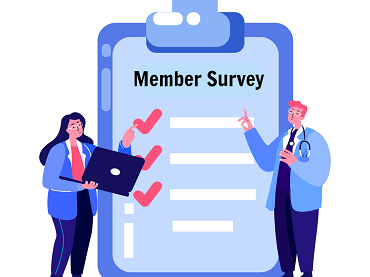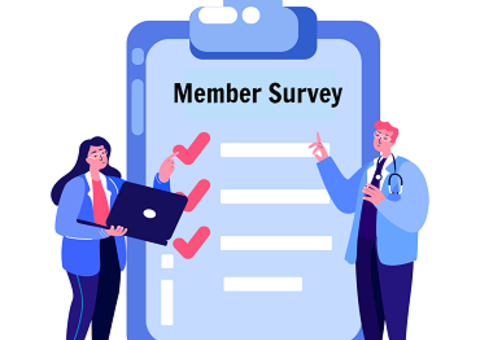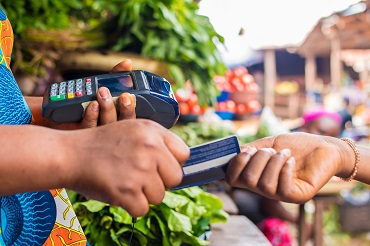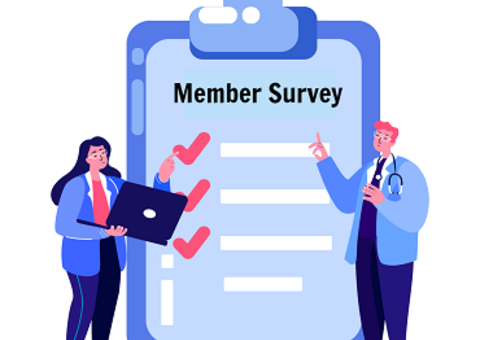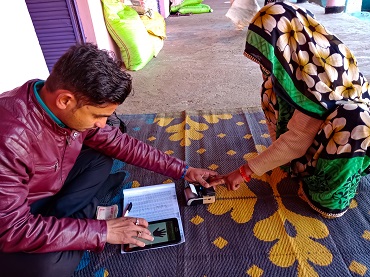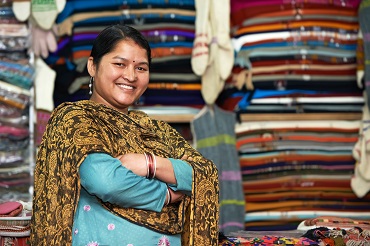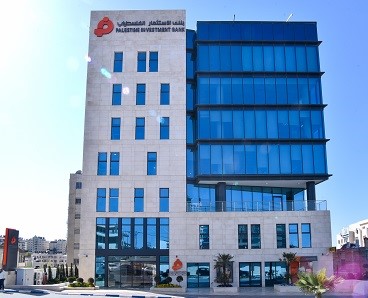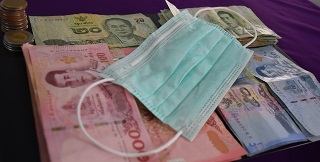Blog
Blog: Data Trends in Analytics, Risk, and Privacy in a Post-COVID 19 World
Jul 31, 2020

The SME Finance Forum hosted a panel discussion on Data Analytics in SME Banking with esteemed speakers who shared their viewpoints from the private and public sectors. From the discussion, it was clear to see that the perspectives varied across different countries where our panelists work and live:
• Buhle Goslar (JUMO) –Africa region and Pakistan
• Niki Luhur (AFTECH, VIDA) – Indonesia
• Yeong Zee Kin (IMDA) – Singapore
During the panel, an engaging discussion emerged around three key topics:
• The latest trends in data governance
• The industry adoption of AI and data analytics
• Balancing the risks with safeguards for accountability on data protection and data privacy
Background
The COVID-19 pandemic has created new challenges in SME banking. While the demand for business loans has increased, financial institutions have faced disruptions in normal business operations, making small business lending even more difficult. Lack of credit data has long been one of the major obstacles to individuals and SME financing in developing countries, but financial institutions are now leveraging alternative data including transactional (payments) data, behavioral data and social media data to determine capacity and willingness to repay loans. Nevertheless, there are risks in utilizing alternative sources such as data inaccuracies, uninformed consumer consent, potential for discrimination and heightened exposure to cyber risks. How can financial institutions use data to enhance access to finance for MSMEs while balancing data privacy, consumer protection and cybersecurity?
With the increasing importance of digital technologies (such as e-commerce and mobile payments) to fuel the economy, it is paramount to have a clear understanding of the roles of the public and private sectors and how they can work together. In a hyperconnected world, digital technologies leverage emerging innovations such as artificial intelligence (AI), internet of things (IoT), blockchain, 5G, cloud computing and edge computing which are evolving rapidly. Hence, policy makers need to encourage experimentation together with the private sector in order to better understand the risk and opportunities with these new technologies.
The vast amount of data (structured and unstructured), frequently referred to as big data, plays a pervasive role in economic, social and political spheres. Both public and private sectors are using sophisticated AI technology to analyze big data in order to generate insights for better decision making. At the same time, cloud computing is making it very affordable to store big data and significantly reducing the cost of computation for the analytics. With the pressing need to develop better AI algorithms, vast amounts of data are required to train and re-train the models for higher accuracy. The explosive rise in big data is putting pressure on governments to consider ways to ensure that their countries benefit equitably from the value of data and address the myriad risks posed by the new digital economy where AI and data have a growing sovereign importance. COVID-19 accelerates the shift to digital online channels and the digitalization of SMEs. Despite this unprecedented growth, much of the value of data is still untapped and waiting to be realized. Typically, data are collected by one party for one particular purpose. It remains available for potential reuse that may generate economic value in different applications far beyond those originally anticipated. Many barriers stand in the way of such beneficial reuse of data. These range from misaligned incentives, to disorganized and incompatible systems, to a fundamental lack of trust.
Highlights from the Panel Discussion
In this engaging discussion with the speakers, numerous pathways in which data can help economic development for SME financing were reviewed. The panelists surfaced the challenges to realizing the economic development gains, offered guidance on how to mitigate them and proposed safeguards for protecting citizens and consumers.
Buhle Goslar is the Africa region & Pakistan CEO for financial technology company JUMO. Founded in London in 2015, JUMO has built a technology platform that runs machine learning algorithms on mobile behavioral data to create financial identities for SMEs. Many do not have access to formal financial services, and are able to access credit and savings through the platform. Operating across multiple jurisdictions, JUMO partners with mobile network operators and banks across Africa and South Asia to deliver real-time, customized loans and other financial products to SMEs over their mobile phones. The company scaled quickly, has served more than 16 million customers across six countries and the platform has originated over 1.8 billion USD in loans over the last 5 years.
Ms. Goslar emphasized the importance of protecting against bias for customers at risk such as women and “agripreneurs”. She does not support the notion that data is the new oil because it encourages businesses to create data silos; a hoarding of data for corporate gain. She believes that the true value of customer data is realized when it is able to flow safely and consensually between forward-thinking entities to better inform products or services that can be tailored to the needs of customers and their circumstances. She advocates a customer centric approach to consumer protection, customer recourse and transparency in order to facilitate data flow for maximum value.
Niki Santo Luhur is the CEO/Founder of VIDA, a digital identity startup. In addition, Mr. Luhur is Founder and Chairman of the Indonesia Fintech Association (“AFTECH”). AFTECH focuses on policy advocacy and has 350+ members. In 2019, AFTECH was appointed by Otoritas Jasa Keuangan (OJK, Indonesian Financial Services Authority) as a Self-Regulatory Organization (SRO) under OJK's Digital Financial Services Innovation Group, responsible for overseeing market conduct and the development of industry standards.
Mr. Luhur shared statistics about the rapidly growing internet economy, the increasing sophistication and proliferation of cyberattacks and accelerating digitization to address today’s need for a low touch economy. Indonesia ranks fifth for cybercrime related search. VIDA’s goal is to do one simple thing very well: to make it easy for you to prove who you are. The company’s expertise in cybersecurity is coupled with products that fundamentally change the user experience of all digital platforms and products. VIDA connects a simple “Face ID” user experience with instant identity proofing against authoritative sources when consumers sign up for a new service, log back into an account or conduct a transaction online. The design principle is to protect the privacy and identity of their users. VIDA aims to connect the dots between various digital ecosystems, as well as help bring offline environments online.
Mr. Luhur commented on the concept of “data ownership” as the antithesis, assuming that there is only a single copy of the data. In a digital world, it is possible to copy the data multiple times at marginal additional cost and the focus should be on enabling and empowering users/consumers for better control of their own data. With a vibrant and growing FinTech community, Indonesian regulators are developing a tiered risk approach to regulate FinTech startups, with the government providing safe harbor that offers innovators scope to experiment with new innovations for SME Financing. As a Self-Regulatory Organization (SRO), AFTECH engages at an early phase to provide input on the regulations without interfering in the free market of supply and demand.
Mr. Yeong Zee Kin is the Assistant Chief Executive (Data Innovation and Protection Group) of the Infocomm Media Development Authority of Singapore (IMDA) and Deputy Commissioner of the Personal Data Protection Commission (PDPC). In his capacity as Assistant Chief Executive (Data Innovation and Protection Group), Mr. Yeong oversees IMDA’s Artificial Intelligence and Data Industry development strategy. He described the measured approach taken by Singapore of using regulatory sandboxes to encourage private sector experimentation and fostering data innovation for greater competitiveness, whilst safeguarding consumers’ interests with accountability measures for data protection to build trust.
Mr. Yeong debunked the myth of data protectionism, saying that data should flow where the decision is made and where the action is taken in order to facilitate new partnerships and opportunities for SMEs. There should be data classification to support trade agreements for import and export of all goods and services. If data is not allowed to move, then almost any cross-border activity would come to a halt.This underscores that extreme forms of “data localization” policies are completely misplaced and that global norms ensuring that data can flow in an accountable fashion is needed. Technical measures and practices need to be in place that could effectively safeguard the data against abuse and ensure that data is protected during the transfer of data across borders.
Closing Remarks
There is value in the diffusion of data sharing. As individuals, we make decisions based on trade-offs for our data privacy to get something in return for a service that is of value to us. For instance, we give consent on location services in order for the ride-sharing app to know where to pick us up for the ride. This location data could later be used for advertising to sell other related services or products. However, we are generally not aware of the different ways that our data is being used, and how firms are jostling for ways to get access to our data.
In the HBR article “Competing in the Age of AI”, the authors stated that organizations that excel at connecting businesses, aggregating the data that flows among them and extracting value through analytics and AI will have the strategic competitive advantage. Digital technology is blurring the boundaries across industries.This leads to the convergence of adjacent industries to create the new digital ecosystems that are customer-centric and innovative for SME Financing.
References:
For further details, please refer to the flagship report on “Promoting Digital Financial Services for SMEs”. It was a collaborative effort with the Global Partnership for Financial Inclusion under the Saudi G20 Presidency in 2020 and the SME Finance Forum.
https://oecd.ai/wonk/singapores-model-framework-to-balance-innovation-and-trust-in-ai
Singapore’s Model Framework balances innovation and trust in AI
United Nations Secretary-General’s Data Strategy
World Development Report (WDR) 2021 – Data for Better Lives




